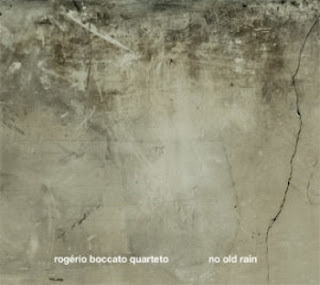Call me jaded, but it takes something really special to make me suspend my critical faculties for even a few minutes. Truth be told, after penning thousands of opinionated paragraphs over the years, I’ve learned that the way I listen to review material is qualitatively different from the purity of dialing right into the music that’s right in your face. Which brings us, happily, to clarinetist Andy Biskin and his new 16 Tons - Songs From The Alan Lomax Collection. Until the quintet launched into Sweet Betsy From Pike, I didn’t know that I’d been hungering for a collection of American folk songs performed by a unit of three trumpets, clarinet, and drums. Live and learn. As a new college graduate back in the Seventies, Biskin worked for the great song collector Lomax as a research assistant, a job that lasted two years. That’s the starting point of this project, and you can read all about it in Biskin’s informative liner essay. (It’s a little hard to read, set in small type in a three-panel booklet, but worth the effort.) Biskin defines his working method here as one of intercutting the songs with his own melodies and short improvisations by himself and the trio of trumpeters. There are also bits and pieces from the jazz tradition worked into the pieces, like the Monk riff that’s woven into the cheerful arrangement of Blue Tail Fly. These folk songs (and one folky original by Biskin) may seem like unlikely vehicles for improvisation, and Biskin notes that when he told people about his ideas for this material, he “got quizzical looks.” But canny arranger and conceptualist that he is, he gets everything to work much better than you might expect. Just about anyone who spends time with this disc will recognize at least a few of these songs. Many of them, after all, were learned and sung in elementary school, and that knowledge provides an internal hook for these renditions. The rest is up to Biskin and his focused group of collaborators. Drummer Rob Garcia acquits himself very well in this unconventional setup, playing with vigorous flair. From right to left in the stereo spectrum, the trumpet “choir” of Dave Smith, John Carlson, and Kenny Warren blends beautifully, a bright and supportive wall of brass that provides a contrast to Biskin’s woody clarinet and bass clarinet. 16 Tons is almost guaranteed to put a smile on your face. Happily recommended.
Andorfin Music ANDRF-007; John Carlson, Dave Smith, Kenny Warren (tp) Andy Biskin (cl, bcl) Rob Garcia (d); NYC, January 12, 2018; Sweet Betsy From Pike/ Grey Goose/ Blue Tail Fly/ Down in the Valley/ House Carpenter/ Go Fish/ Lily Munroe/ Tom Dooley/ Muskrat/ Knock John Booker/ Am I Born to Die?/ She’ll Be Comin’ Round the Mountain/ Sweet Betsy From Pike; 54:54. andybiskin.com











